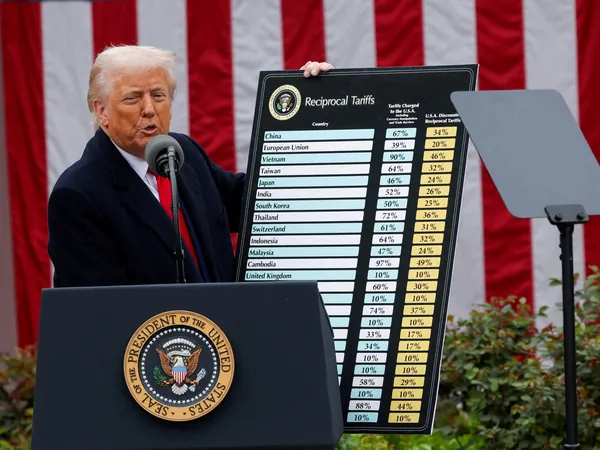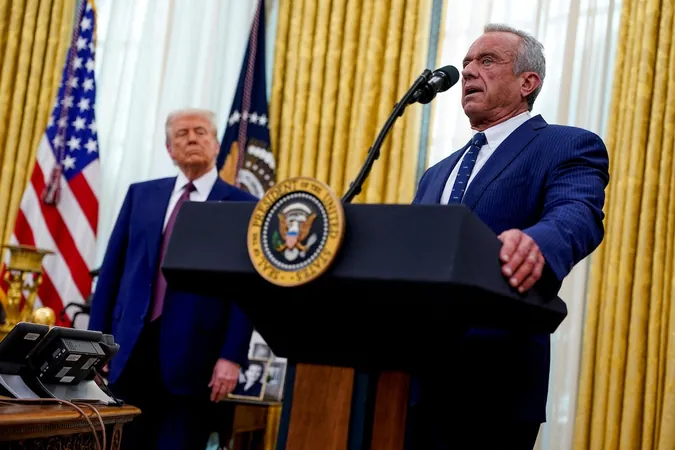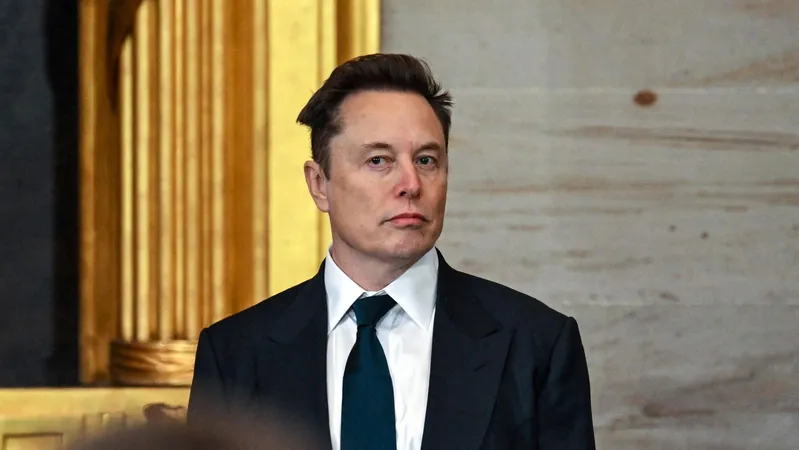
Global Trade Talks Surge as Over 50 Countries Respond to U.S. Tariffs
2025-04-06
Author: Michael
In a dramatic turn of events, more than 50 nations have reached out to the White House to spark trade discussions following the implementation of comprehensive punitive tariffs by U.S. President Donald Trump, as confirmed by administration officials.
These tariffs have led to a staggering nearly $6 trillion decline in U.S. stock values in just one week, sending shockwaves through global markets and raising alarms about a potential economic downturn. Yet, the Trump administration maintains a dismissive stance regarding fears of a recession.
As investors brace themselves for market openings after Wall Street’s recent selloff, Asian markets are set to anticipate another tumultuous trading day. The unpredictable nature of international reactions to the tariffs could pose serious challenges.
In a series of Sunday-morning talk show appearances, top economic advisers to President Trump defended the tariff strategy, framing it as an essential move to bolster the U.S. position in the global trade arena. Treasury Secretary Scott Bessent announced that negotiations with over 50 nations commenced immediately after the tariffs were declared, though he refrained from disclosing their identities. He asserted that these tariffs provide Trump with 'maximum leverage,' despite ongoing uncertainty about their impact on the U.S. economy. Bessent pointed to unexpected job growth as a counterargument to recession-related concerns.
The tariffs officially took effect on Saturday, beginning with an initial 10 percent 'baseline' tariff enforced at U.S. customs, airports, and seaports. This move signals a stark shift away from the post-World War II consensus on mutually agreed tariffs.
However, economists are sounding alarms, with projections indicating a possible decrease in U.S. GDP. Analysts at JPMorgan have notably revised their growth forecast from a modest gain of 1.3 percent to a concerning loss of 0.3 percent. The tariffs, designed to pressure foreign governments into concessions, have already incited retaliatory measures, especially from major trading partners like China, stoking fears of a brewing global trade war.
U.S. allies, including Taiwan, Israel, India, and Italy, have swiftly expressed their intentions to negotiate with the Trump administration to avert the fallout of these tariffs. Taiwanese leader Lai Ching-te proposed a zero-tariff framework as a basis for dialogue, while Israeli Prime Minister Benjamin Netanyahu requested relief from the existing 17 percent tariff on Israeli imports.
With the situation escalating, the U.S. plans to impose even higher 'reciprocal' tariffs in the coming days. Critics of the tariff implementation have raised valid concerns regarding their application methodology, particularly when levied against isolated, uninhabited territories.
Commerce Secretary Howard Lutnick defended the strategy, emphasizing its objective to block countries from exploiting loopholes and circumventing the tariffs. As these developments unfold, businesses and consumers alike are left pondering the long-term implications of this seismic shift in trade policy.









 Brasil (PT)
Brasil (PT)
 Canada (EN)
Canada (EN)
 Chile (ES)
Chile (ES)
 Česko (CS)
Česko (CS)
 대한민국 (KO)
대한민국 (KO)
 España (ES)
España (ES)
 France (FR)
France (FR)
 Hong Kong (EN)
Hong Kong (EN)
 Italia (IT)
Italia (IT)
 日本 (JA)
日本 (JA)
 Magyarország (HU)
Magyarország (HU)
 Norge (NO)
Norge (NO)
 Polska (PL)
Polska (PL)
 Schweiz (DE)
Schweiz (DE)
 Singapore (EN)
Singapore (EN)
 Sverige (SV)
Sverige (SV)
 Suomi (FI)
Suomi (FI)
 Türkiye (TR)
Türkiye (TR)
 الإمارات العربية المتحدة (AR)
الإمارات العربية المتحدة (AR)